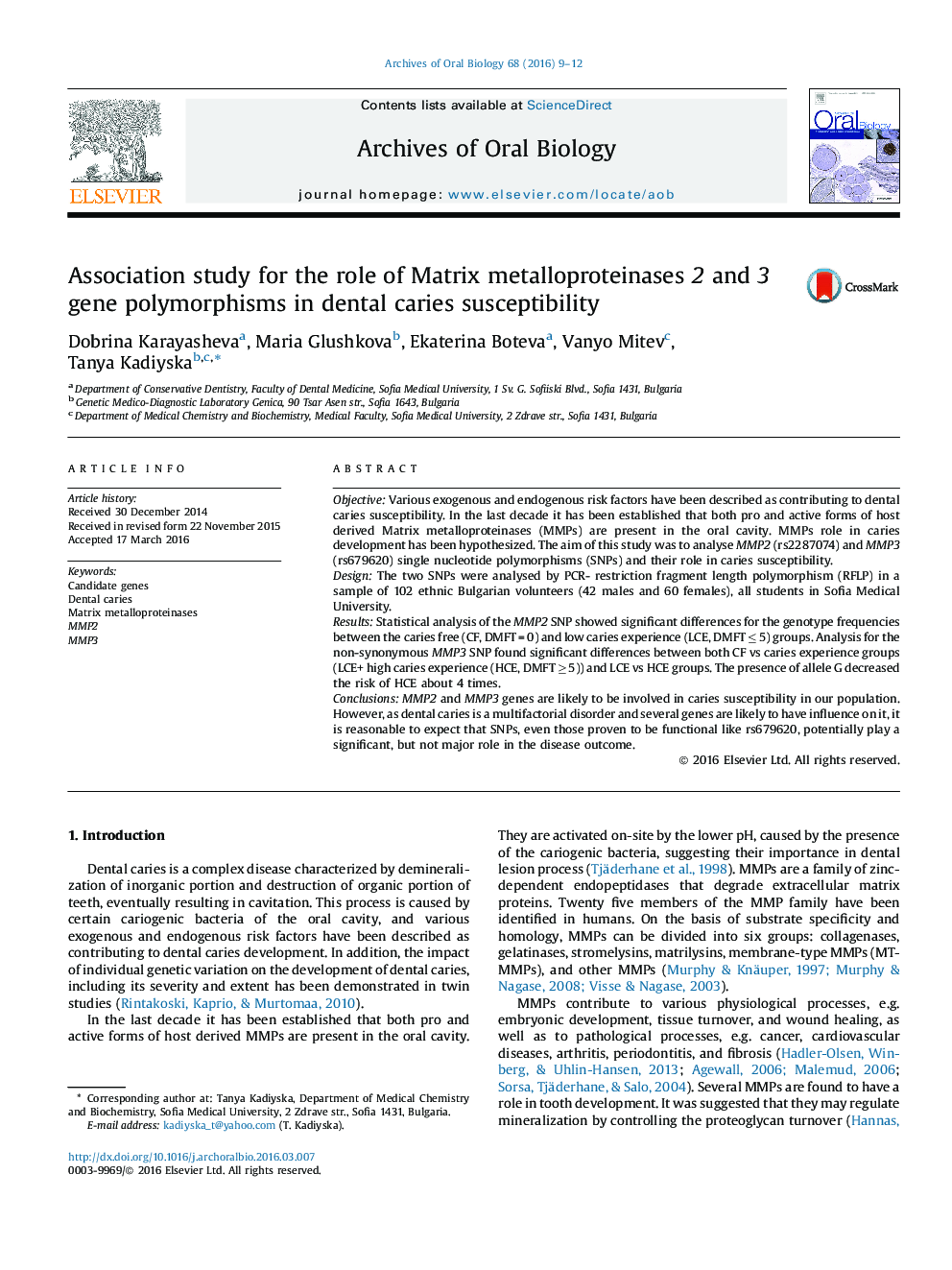| کد مقاله | کد نشریه | سال انتشار | مقاله انگلیسی | نسخه تمام متن |
|---|---|---|---|---|
| 3120628 | 1583285 | 2016 | 4 صفحه PDF | دانلود رایگان |
• MMP2 genotype frequencies differ between CF and LCE groups.
• MMP2 genotype AA increase the risk for dental caries development about 3,5 times.
• MMP3 allele and genotype frequencies differ between CF and caries experience groups.
• MMP3 genotype frequencies differ between LCE and HCE groups.
• MMP3 genotype GG decrease the risk of HCE about 4 times.
ObjectiveVarious exogenous and endogenous risk factors have been described as contributing to dental caries susceptibility. In the last decade it has been established that both pro and active forms of host derived Matrix metalloproteinases (MMPs) are present in the oral cavity. MMPs role in caries development has been hypothesized. The aim of this study was to analyse MMP2 (rs2287074) and MMP3 (rs679620) single nucleotide polymorphisms (SNPs) and their role in caries susceptibility.DesignThe two SNPs were analysed by PCR- restriction fragment length polymorphism (RFLP) in a sample of 102 ethnic Bulgarian volunteers (42 males and 60 females), all students in Sofia Medical University.ResultsStatistical analysis of the MMP2 SNP showed significant differences for the genotype frequencies between the caries free (CF, DMFT = 0) and low caries experience (LCE, DMFT ≤ 5) groups. Analysis for the non-synonymous MMP3 SNP found significant differences between both CF vs caries experience groups (LCE+ high caries experience (HCE, DMFT ≥ 5)) and LCE vs HCE groups. The presence of allele G decreased the risk of HCE about 4 times.ConclusionsMMP2 and MMP3 genes are likely to be involved in caries susceptibility in our population. However, as dental caries is a multifactorial disorder and several genes are likely to have influence on it, it is reasonable to expect that SNPs, even those proven to be functional like rs679620, potentially play a significant, but not major role in the disease outcome.
Journal: Archives of Oral Biology - Volume 68, August 2016, Pages 9–12
